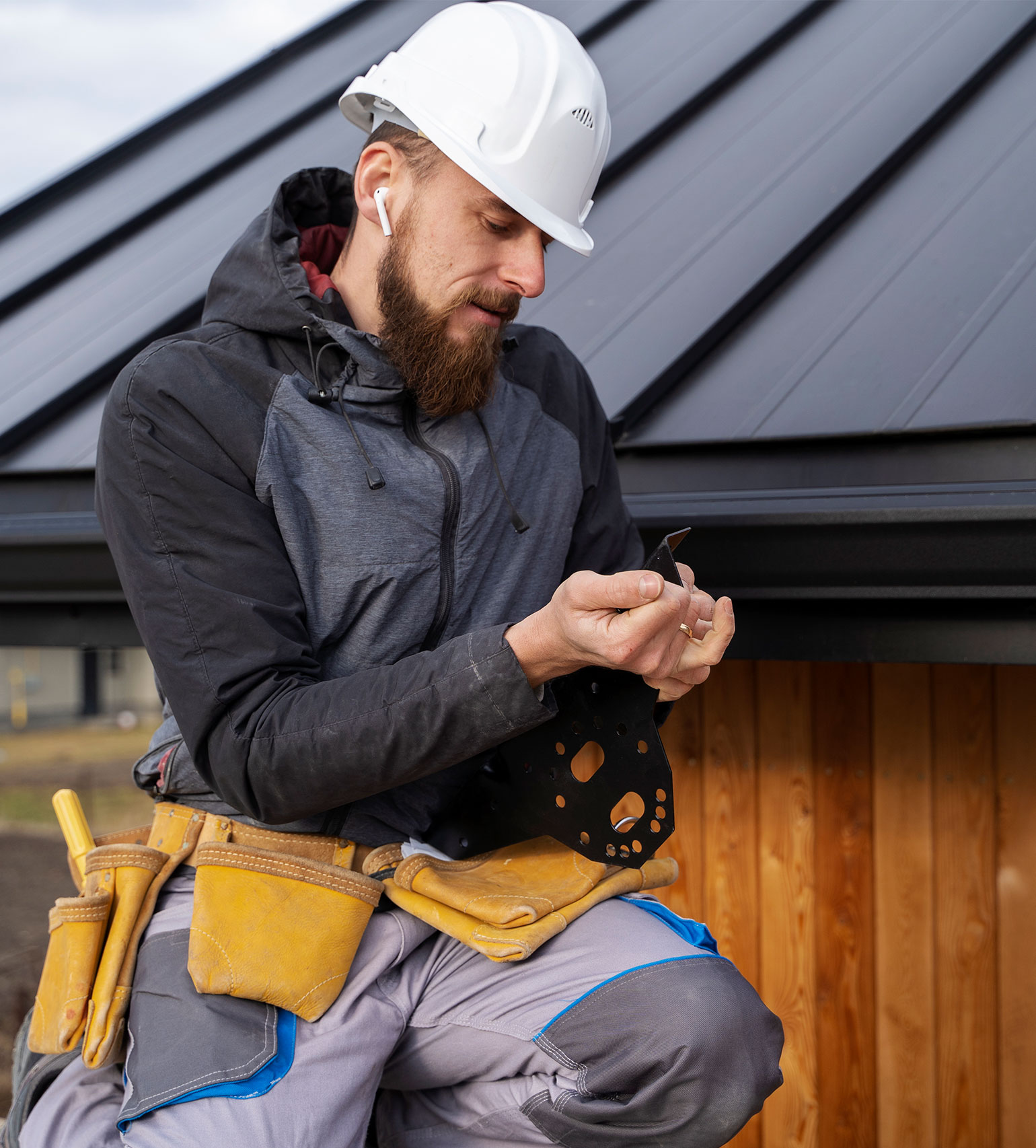Essential Home Maintenance Tasks to Complete This Fall

Taking care of key home improvement projects and general home maintenance in the fall will reduce your risk of minor problems turning into huge ones when winter rolls around. Many East Coast insurance companies see a dramatic rise in the winter of homeowner’s insurance claims because homeowners neglected to complete routine home maintenance tasks when the weather was more mild. Here is a list of the most essential home maintenance tasks to complete this fall:
Roof Repair or Replacement
This is probably the largest home maintenance tasks on this list, and it’s the most important. A roof problem that seems minor during dry summer weather can quickly turn catastrophic when wet, cold weather arrives. Inspect your shingles and look for missing or peeling areas on the roof. Check for cracks or holes and contact a professional for repair if needed. Look for areas where small animals might enter your attic or crawlspace seeking warmth, and close those off.
Evaluate Your Deck and/or Dock for Damage
If you have a wooden deck or dock, fall is the perfect time to repair any cracked or damaged areas. After sanding, you can repaint and re-seal the wood so that it’s protected from harsh weather. Without re-sealing, your deck or dock can quickly become damaged and rotted in the rain or snow, making it unsafe to use.
Repair Your Sidewalk and Driveway
Cleaning and repairing your sidewalk and driveway will make them easier to maintain in snowy winter weather. The snow, ice, and salt can quickly make small areas of damage much larger and create an unsafe situation for you and your family. Pull any weeds or grass that has grown in the cracks of your sidewalk or driveway and seal up the cracks. Seal the concrete expansion joints with polyurethane caulk to prevent water from entering and freezing. Then clean and seal the surface using a pressure washer and concrete or asphalt sealant.
Inspect Your Fireplace and Chimney
Before your fireplace is safe to use, it must be inspected to make sure there are no combustible deposits, and the flue is in working order. Without proper maintenance and repairs, a fireplace can cause carbon monoxide poisoning. Clear out the chimney and make sure no birds or animals are nesting inside. Have a professional clean the chimney and clear it for safe use. Test your flue to make sure it’s opening and closing properly.
Complete HVAC Maintenance and/or Furnace Maintenance
Before it gets cold, you should have your HVAC system or furnace inspected to make sure it’s safe to operate. Replace old air filters, clean up your outdoor unit, and check for damage. An HVAC technician can make sure the heater is safe to use and clean out your air ducts so that your indoor air quality improves.
Aerate Your Lawn
Before the winter freeze, you should mow and aerate your lawn. The grass should be about 2 inches tall. Aerating the lawn allows micronutrients to get into the soil to feed the lawn before the cold weather hits. You can also use a pre-emergent to prevent weeds from germinating over the winter. Laying down fertilizer will guarantee your lawn will grow back healthy in the spring.
Complete Fall Yard or Garden Maintenance
You can protect your trees, shrubs, and plants from the winter cold by watering generously, mulching the roots, using pest protection, and shielding them from wind and snow using shrub covers or chicken wire. You should also clean up dead plants, leaves, grass, and debris, which can prove to be a fire hazard or a home for animals and pests looking for a place to build a winter nest.
Inspect and Repair Gutters and Downspouts
Your home’s gutters and downspouts protect your home’s foundation from damage during storms. If the gutters are clogged, cracked, or broken, water is more likely to drain onto your exterior walls or pool up around your home’s foundation. This can impact the structural integrity of your home, and cause leaks, mold, and mildew. Repair or replace your gutters annually to prevent serious problems.
Weatherize Your Windows and Doors
Weatherizing your windows and doors can prevent cold drafts, improve your home’s energy efficiency, and reduce your winter heating bills. You can seal up air leaks and cracks around windows and doors using rope caulk or weatherstripping. You might also consider using a programmable thermostat to avoid running the heater excessively while you’re not home.
Inspect, Repair, and Insulate Your Pipes
In preparation for cold weather and overnight freezes, you should check your outdoor pipes to see if there are any noticeable signs of damage. Repair any damage and then insulate your pipes so that they don’t freeze or burst.
Test Your Smoke and Carbon Monoxide Detectors
This is one that even diligent homeowners forget to do routinely. Test your smoke and carbon monoxide detectors to make sure they’re working properly. They are the main thing protecting your family’s safety in the event of a heater, furnace, or fireplace malfunction or accidental fire. Smoke and carbon monoxide detectors should be replaced every 7-10 years, depending on the manufacturer.
If You Need to Amend or Update Your Homeowner’s Insurance Policy, Call Us at Hull Maynard Hersey Insurance
If you aren’t sure what protection your homeowner’s insurance policy offers, or if your life circumstances have changed and you think you need to amend your policy, contact us at Hull Maynard Hersey Insurance. Our staff won’t try to sell you more than you need, and we’ll work closely with you to help you find the right home insurance options for your lifestyle, budget, and goals. Our homeowner’s insurance can protect you from break-ins, burst pipes, fire damage, and hailstorms, and we can help you understand riders and add-ons that offer even more protection to fit your specific needs. We’ll also help you compare insurance policies to find the best coverage possible. Our supplemental insurance policies also cover RVs, boats, snowmobiles, and more. If you’re ready to explore your options for homeowner’s insurance coverage, call us at (800) 693-3002 or request a quote online.



